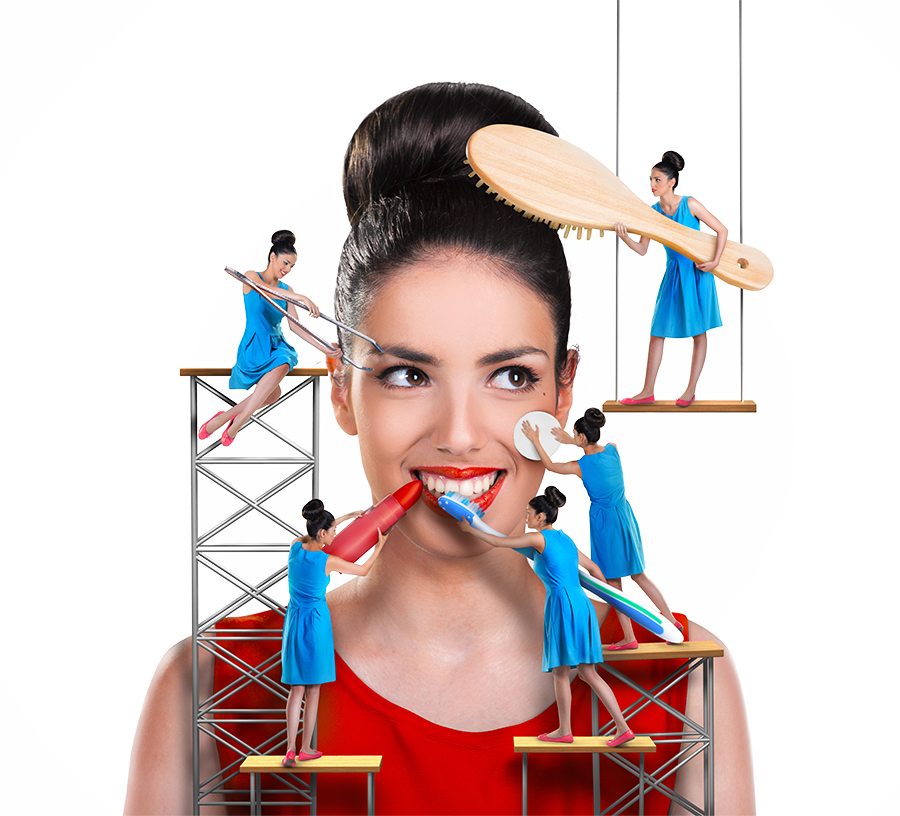You (Insert Verb) Like a Girl!
We’ve all heard this statement before, usually meant in a negative way to insult the recipient of the remark.
But, why? What in our society has molded us to think that doing anything like a female is bad?
For instance, what’s wrong with running like a girl? American Olympic medalist Florence Griffith-Joyner ran the 100-meter dash in 10.49 seconds, setting the world record in 1988. Running like her seems like a major compliment, in my humble opinion.
Bottom line is: In today’s society, women and girls are socialized to believe that in order to be beautiful, they must be feminine and “pretty.” If you are doing something “like a girl,” that means you must be doing it daintily.
Recently, there have been campaigns to shift the paradigm of “beauty” away from the air-brushed, photoshopped illusion that media has convinced everyone is “true beauty.”
For example, the #LikeAGirl campaign by Always sparked national dialogue when it aired the “Do it Like a Girl” ad during the 2015 Superbowl. It showed how people of varying genders and ages react to the phrase “like a girl.”
Research by the company shows girls’ self-esteem plummets during puberty.
Personally, I can remember at age 10 I prided myself on running faster than all the boys. I didn’t care what anyone said and never gave “being a girl” a second thought.
Now, at 29, I find myself checking the mirror constantly; worrying about imperfections and flaws. It isn’t out of vanity, but instead anxiety that something is out of place — be it my hair, makeup or otherwise. I even avoid certain types of harsh lighting that don’t complement my skin tone.
Recent research by Dove shows that, sadly, I’m not alone; only 4 percent of women worldwide consider themselves beautiful.
In an effort to get through to women that they are beautiful, many revered super models are shedding their makeup and touched-up images to take a stand against unrealistic examples of beauty. For example, 49-year-old American model Cindy Crawford leaves her makeup at home on a regular basis to set an example for her teenage daughter. The two recently posted a selfie to Instagram without makeup—and looked absolutely flawless.
Celebrities and big companies aren’t the only ones with the power to make waves. The definition of beauty should not be written by company executives or advertisement agencies; it is written by you.
The selfie: a self-love movement
While you may not need to read a status about what your best friend ate for breakfast, you can’t help but smile at the selfie she posted along with it.
She hasn’t put on any makeup yet and her hair is tied up in a sloppy ponytail. She’s laughing and holding up a box of waffles to show the camera. Without thinking twice, you click the like button, watching the number change from nine to 10. She’s still eating those waffles when she sees the notification and appreciates your simple show of support.
The perfection-obsessed maze becomes a little easier to navigate when interactions like this are at our fingertips.
Emily Cary, a Sumter County native, said she “would find it hard to believe that someone feels bad about themselves after others speak kindly of a photo.” She frequents popular social media sites regularly and makes a point to only comment on a photo if she feels like that person will notice and feel good about her comment.
Everywhere you look at any given moment, you can witness women pulling out their phones to take representation into their own hands—a college graduate grinning as she snaps a picture with her back to the crowd, a teenage girl in a dressing room excited about her new outfit, a grandmother learning how to take her first selfie. These pictures of real people fill up our social media platforms. We aren’t just seeing impossibly thin, ultra-feminine girls. Instead, we are seeing happy, confident people of all shapes, sizes and colors.
“Social media represents everybody, of all types, and no one has to feel different or alone,” said Mona de Torres, an Asian-American who grew up in Lake County.
De Torres said she understands how damaging the media can be. She explained that she found it endlessly frustrating to always see people who looked nothing like her portrayed by the media.
“The media seems to dictate what is beautiful and what is not,” she said. “From experience, I know a very subtle and effective way to convince a young person that they are not beautiful is to not represent them.”
The distinction between social and mass media is an important one, Cary and de Torres agree.
While mass media constantly tries to sell us new-and-improved beauty products, social media allows individuality to flourish and has the power to influence people on a much more personal level than other media platforms.
“Social media hits closer to home, literally,” de Torres explained. “It’s a tool for everyday people.”
The power to change mass media standards is in your hands. Like, comment and share. Keep taking selfies; take representation into your own hands.

